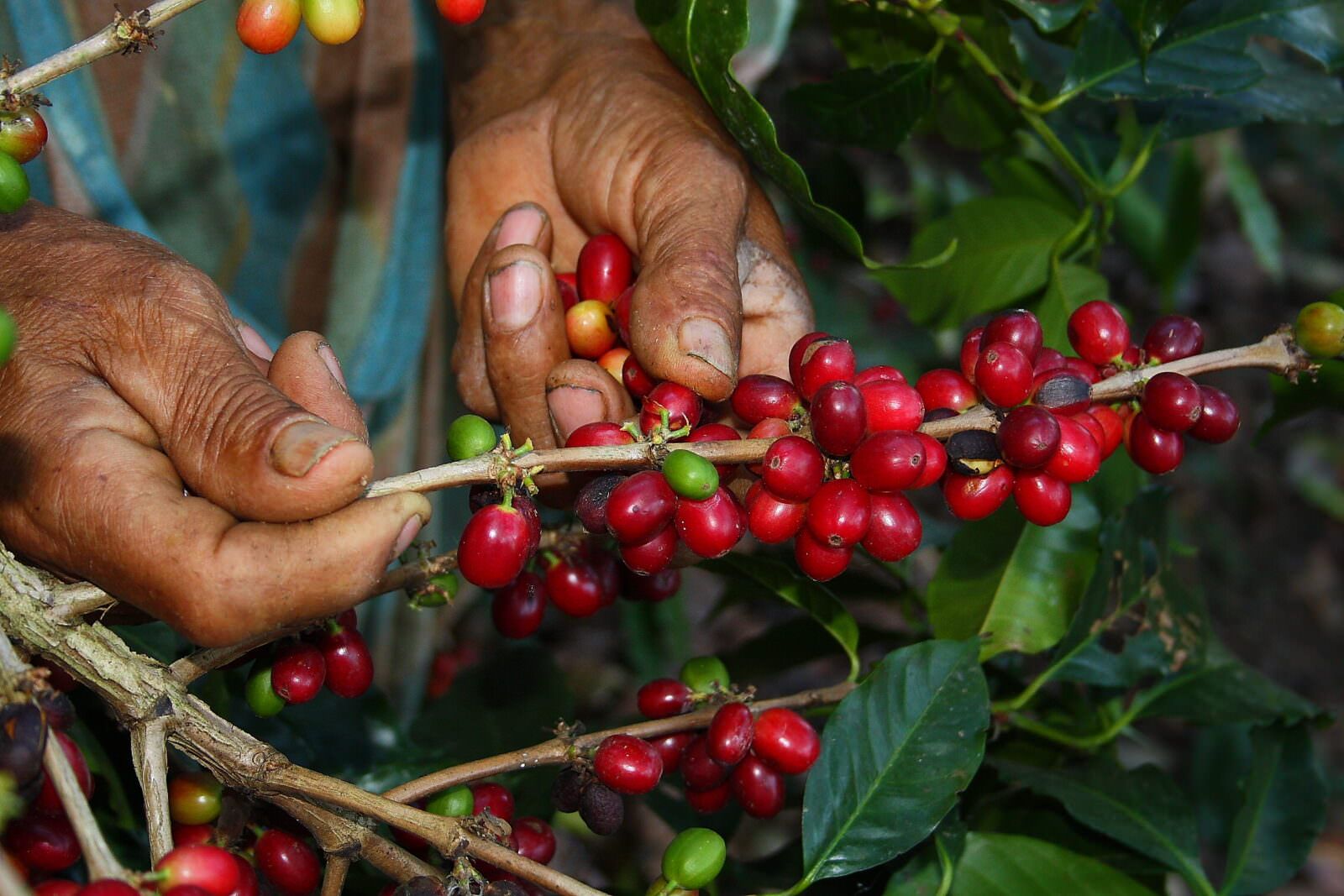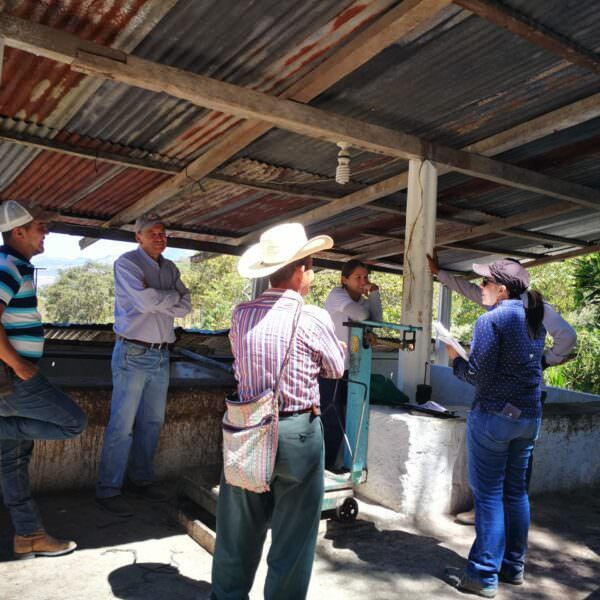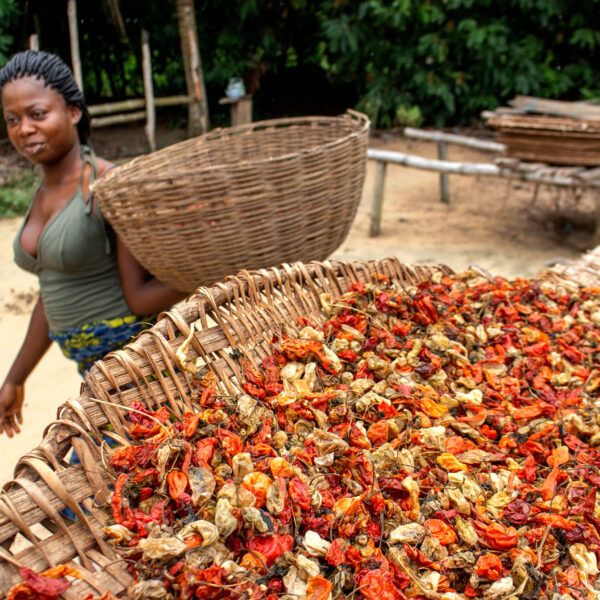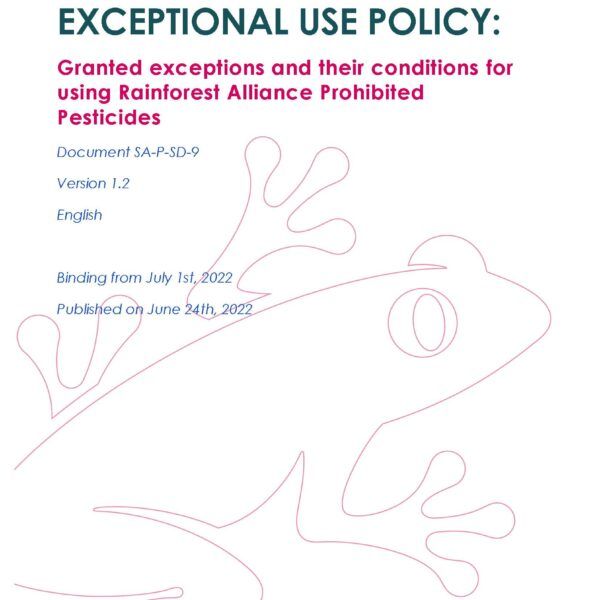International coffee prices have been extremely low in recent years. Many coffee farmers around the world are even unable to meet their costs of production. The low prices have a devastating impact on the 25 million smallholder coffee farmers, their families and communities worldwide and on the landscapes they help to manage and depend on.
The current coffee price is, for most farmers, lower than the cost of production and its volatility is critically high.
At the Rainforest Alliance we believe the key to a sustainable and healthy coffee sector is ensuring that producers – large or small – are economically viable businesses. For smallholders this can be the difference between being able to earn a decent living or being stuck in a cycle of poverty. For larger farms it can be the difference between paying workers a living wage or not. For all producers’ lack of economic viability means they will not be able to invest in sustainable practices, adapt to climatic changes or take steps to respect child or worker rights.
The causes of the current price drop are complex and include issues on how supply is managed, poorly designed agricultural policies, and insufficient support for farmers and farm management. Speculation in the coffee futures market may also be a factor, exacerbating price swings. Yet whilst the current pricing crisis is particularly dire, fluctuating prices are a trait of any commodity and the long-term sustainability of producers will only be possible if it can be achieved within the current market system they rely on.
However as the recent dramatic price falls have demonstrated, the market is not an equal playing field. Producers carry a disproportionate amount of risk, and often lack the knowledge and access to tools that are designed to deal with these risks. This is compounded by being impacted more quickly and more dramatically when the market price fluctuates. Price volatility often means producers are unable to commit long term investments needed to implement sustainable agricultural practices. At the same time they cannot easily exit the coffee market and move into other forms of income generation.
It is therefore vital that all actors in the supply chain commit to a long term and systemic response in order not only to improve prices but also to allow producers to build their resilience to fluctuating markets and increase their profitability (e.g. by improving coffee quality through more efficient and sustainable farming practices).
We call on the coffee sector to start taking action today to ensure that the coffee we all enjoy is not being produced at the detriment of producer’s livelihoods. We believe traders, roasters and retailers must adjust the way they do business.
Roasters and buyers must change their procurement practices to ensure that producers receive decent payment for their crop within a timely manner. Payment terms that can be as long as 200 days mean producers are unable to plan ahead, invest sustainably or save for when prices drop. This is exploitative, outdated and unfair and should stop. In addition, committing to long term relationships with producers would help them to plan ahead and be confident that they can invest in more efficient and sustainable production practices. Moreover, longer term and more direct relationships can lead to better transaction conditions and prices in the future.
Governments and companies should increase their investments in the sustainability of the producers. Producers need more support from their governments in order to become sustainable, for example through better implementation of good agricultural practices, access to inputs and finance, increasing their resilience through diversifying their income sources.
At the Rainforest Alliance we are committed to continuing to work with producers and the entire supply chain towards a more sustainable coffee sector. We work on fairer distribution throughout the value chain and strengthening the producer’s position in order for them to be able to advocate for the support and policies that will allow them to become sustainable. Meanwhile we continue to appeal to the industry to favor certified sustainable coffee over conventionally produced coffee in order to support producers and help create a sustainable sector.
We are continuously improving our approach to sustainability certification and working towards a vision of reimagining certification. Our 2020 Certification Program, currently in development, is the first step towards this vision. Important innovations in this program include harnessing the power of data, adapting to different contexts, strengthening assurance by making it more risk-based and building-in continuous improvement of the system.
The coffee prices crisis needs to be tackled in close collaboration with companies, governments, and civil society organizations. This is why the Rainforest Alliance participates in a number of coffee coalitions and platforms.
We are an active member of the Sustainable Coffee Challenge and the Global Coffee Platform (GCP). We actively support GCP’s call-to-action to collectively address the price crisis. We also signed the International Coffee Organization declaration supporting the extension of the sector’s dialogue on long-term solutions and combined response of the coffee industry to address the coffee price crisis with concrete time-bond actions. We actively contribute to the Coffee Price Crisis Response Initiative led by Specialty Coffee Association too.




